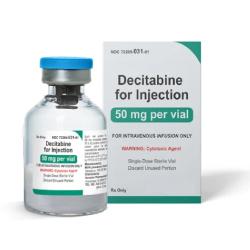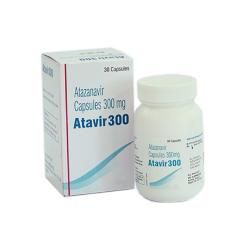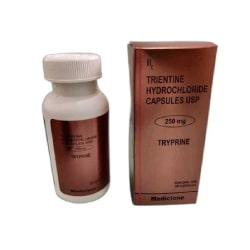Description
The medicine Decitabine injection is a nucleoside metabolic inhibitor indicated for treatment of myelodysplastic syndromes (MDS) including previously treated and untreated, de novo and secondary MDS of all French-American British subtypes (refractory anemia, refractory anemia with ringed sideroblasts, refractory anemia with excess blasts, refractory anemia with excess blasts in transformation, and chronic myelomonocytic leukemia) and intermediate-1, intermediate-2, and high-risk International Prognostic Scoring System groups.
Dosage and Side Effects
Three Day Regimen Administer Decitabine at a dose of 15 mg/m2 by continuous intravenous infusion over 3 hours repeated every 8 hours for 3 days. Repeat cycle every 6 weeks.
Five Day Regimen Administer Decitabine at a dose of 20 mg/m2 by continuous intravenous infusion over 1 hour repeated daily for 5 days. Repeat cycle every 4 weeks.
The common side effects of Decitabine are neutropenia, thrombocytopenia, anemia, and pyrexia.
FAQ's
Is decitabine approved by FDA?
The FDA approved the drug Decitabine in 2006.
What class of drug is decitabine?
Decitabine belongs to the class of medications called hypomethylation agents. It works by helping the bone marrow produce normal blood cells and by killing abnormal cells in the bone marrow.
How much does decitabine cost?
The cost of Decitabine is reasonable and one can readily purchase this medicine from any certified pharmaceutical supplier.






